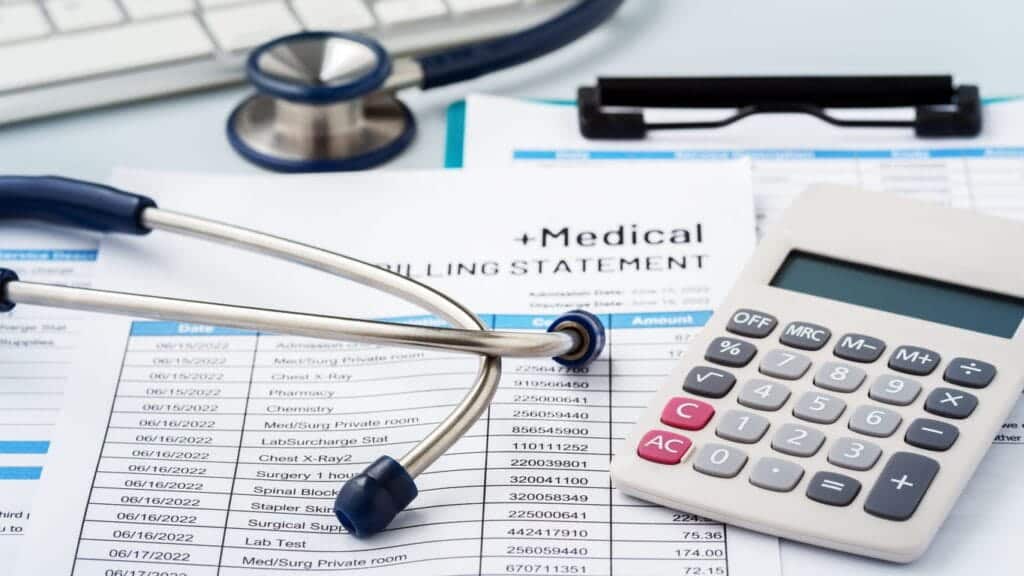When you’re in a car accident, you’ll likely face medical bills to treat your injuries. Of course, the next question is, who pays for your medical bills after a car accident in Florida?
Florida is one of a handful of states that adhere to no-fault auto laws. That means regardless of who was at fault, an injured victim will be responsible for tapping into their auto or health insurance to cover the costs of medical bills.
Who pays your medical bills after a car accident in Tampa, Florida, depends on the severity of your injuries. During payout discussions, you may also need to work with an experienced Florida car accident lawyer to ensure you get the compensation needed for your medical bills.
Does your accident fall under no-fault?
The first step to determining who pays your medical bills after a car accident is determining whether or not your case falls within Florida’s no-fault system. All Florida drivers must purchase no-fault vehicle insurance. The insurance covers less serious injuries you might receive after a car accident.
The general rule is that each driver turns to their own auto insurance first to recover losses after a car accident, regardless of whether they were at fault or not.
However, if you suffer a severe or permanent injury that meets the definition of a qualifying injury under Florida law, you can bring a claim against the at-fault driver to recover your losses. Once you determine what type of case you have, you can determine who pays your medical bills.
Understanding Florida’s no-fault insurance laws
Under Florida’s no-fault motor vehicle law, all drivers are required to carry personal injury protection coverage (PIP) as part of their auto insurance policy. PIP coverage is not liability coverage and helps protect only the insured individual only.
If you are involved in an auto accident, whether you are a driver or a passenger in someone else’s vehicle, and you sustain injuries as a result, your PIP insurance will cover up to $10,000 of your personal recovery.
Your PIP insurance will pay 80% of your medical bills, 60% of your lost wages, and 100% of replacement service costs. This is the cost of any service you require because of a loss of ability resulting from the accident.
Limits on no-fault insurance
In Florida, the limit is 10/10/10. This means the insured individual must carry at a minimum:
- $10,000 of bodily injury coverage per person
- $20,000 paid per accident
- $10,000 of property damage coverage per accident
Policy limits
Medical payment limits will kick in on a per-person per-accident basis. These medical payment limits act as the primary coverage when an individual is injured in a vehicle they own and kick in as secondary insurance when the individual injured is in a vehicle they do not own. Typically, limits are $500, $1,000, $2,000, and $5,000.
The benefits of no-fault insurance laws
The major benefit of Florida’s no-fault auto insurance laws is that you are protected in the event of any automotive accident, even if you are a pedestrian and are injured by another driver. In an event like a hit-and-run or in a parking lot, your PIP insurance will kick in and cover your medical bills and lost wages.
Who pays if your injuries are in the no-fault system?
If your injuries stay within Florida’s no-fault system, your order for recovery is as follows:
- Personal injury protection (PIP insurance)
- MedPay supplemental coverage
- Your health insurance
- Remaining expenses paid out of pocket by you
PIP insurance
Personal injury protection (PIP insurance) is at the core of Florida’s no-fault insurance. PIP insurance pays for your medical bills when you’re in an accident, whether or not you contributed to the cause of the accident.
PIP insurance pays 80% of your medical bills up to your policy limit (sometimes called the 80% rule). You may also have a deductible you must meet before the insurance coverage kicks in.
What PIP insurance must cover
Florida’s no-fault laws dictate what types of medical services must be covered by PIP insurance. They include:
- Medical, surgical, X-ray, dental, and rehabilitative services
- Hospital, ambulance, and nursing services
- Follow-up care
Additionally, requirements detail that:
- The treatment facility must be medically licensed
- You must have a doctor’s order for the medical care
- Acupuncture and massage therapy are not covered
- Injuries inflicted because of self-harm or while you’re committing a felony are not covered
MedPay coverage
Once your PIP insurance has covered your losses up to your policy limits, the next step is to look at MedPay for additional coverage.
MedPay is optional supplemental coverage for medical bills that your PIP benefits don’t pay. You can buy MedPay insurance that covers the 20% of damages that PIP benefits don’t include. You can also purchase MedPay coverage that pays more than your PIP benefits.
Additional bills
You may have additional bills after your PIP insurance and MedPay benefits are exhausted. The next step is to look at your health insurance provider.
This is where your insurance provider takes over. Once your PIP and MedPay policies pay out to their policy limits, your health insurance begins to pay benefits according to the terms of your policy.
You cover any additional bills
If even your health insurance doesn’t cover all of your bills, you may be left to pay for some of your losses out of pocket. That makes it essential to examine your insurance policy before you have an accident.
Even though you must have a $10,000 car insurance policy, you can purchase more. If you have the PIP insurance and MedPay coverage you need, you may be able to pay your medical bills without turning to your health insurance or dipping into your own wallet.
Whose insurance policy pays for my medical expenses?
If your injuries qualify as severe injuries, you may be able to pursue legal action through a personal injury lawsuit against the other driver’s insurance company. After all, if you are injured and suffer extensive medical bills and treatment costs, you should not be left on the hook for someone else’s negligent actions.
Florida law does not strictly define a serious injury, but such an injury rises to that occasion if you experience any of the following:
- Significant loss of important body functions
- Permanent loss of bodily function
- Permanent injuries or debilitation
- Injuries so severe that there is a medical probability of death
- Death
What if the other driver is uninsured?
Despite Florida law requiring drivers to have auto coverage, some motorists still drive without auto insurance. You can add uninsured motorist coverage to your auto policy to protect yourself in an accident involving an uninsured driver. This coverage allows you to pursue a claim against your own insurance company in such an event. Learn more about uninsured motorist rights and responsibilities via statute 627.727.
How do I get payment?
You must submit copies of the billing statements to the insurance company to get your hospital stay, emergency room bills, and other expenses paid. The insurance company should pay the bills as soon as they receive them. The insurance company’s payment is overdue after 30 days.
PIP insurance is primary
According to Florida law 627.736, PIP insurance is the primary payer after a car accident. Even if you have health insurance, your PIP insurance pays first. Remember to seek medical care within 14 days of your accident to receive full PIP benefits.
What do I do if the insurance company won’t pay?
You have a right to the PIP benefits you bought to comply with Florida’s no-fault insurance laws. You may be in a situation where the insurance company won’t pay you the PIP benefits you deserve.
If the insurance company doesn’t pay you what you deserve, you can bring a claim to enforce your PIP benefits.
If your injuries are outside of the no-fault system
If you have extremely serious injuries or car accident injuries that result in permanent disfigurement, you can go outside of Florida’s no-fault insurance system to bring your claim directly against the other driver.
In that case, you bring your case traditionally. Your attorney may approach the other side or their insurance policy for a fair settlement. You might also bring your case through the legal system.
How an accident lawyer can help
The legal team at Jack Bernstein, Injury Attorneys, has helped thousands of accident victims just like you. We’re dedicated to ensuring that each of our clients receives the competent, aggressive representation they deserve.
Sources:
FLHSMV. Florida Insurance Requirements. (2023).
Florida statute 627.727. (2023).
Florida Statute 627.736. (2023).


